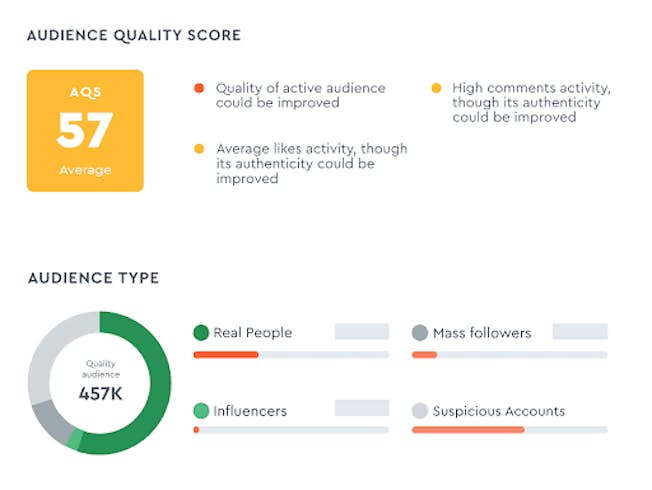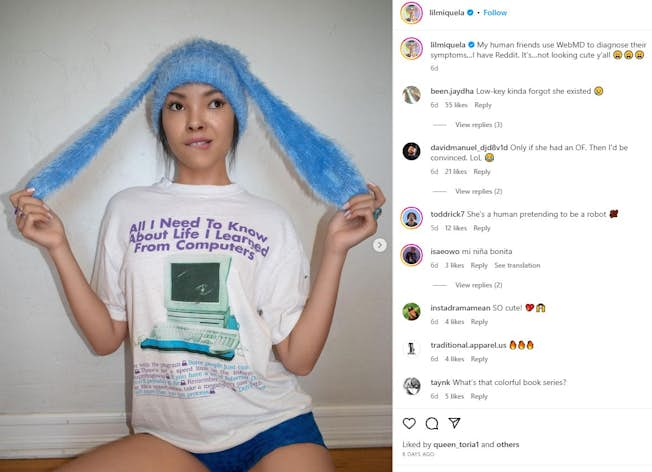As more brands embrace the opportunity to use influencer marketing at scale, artificial intelligence (AI) tools improve performance, reduce risk, and supercharge productivity. They are the perfect match.
Influencer marketing is big business. In 2023 it is estimated at $21.1 billion worldwide and that’s set to continue growing in 2024.
As traditional advertising finds it increasingly difficult to reach today's tech-savvy, ad-resistant consumers, influencers provide an additional way to connect with potential customers. And, as brands see higher levels of trust and engagement from smaller (micro) influencer partnerships, the need to streamline the multi-influencer marketing model increases.
Thankfully, a timely solution is on hand. AI is transforming the influencer marketing landscape by providing tools and solutions that help brands make data-driven decisions, and automate sourcing, authenticating, and managing influencer relationships.
This synergy between influencer marketing and AI is useful in improving:
- Target Audience Segmentation
- Influencer Selection and Matching
- Content Creation and Optimization
- Performance Analytics
- Influencer Fraud Detection
- Virtual Influencers
Let’s take a look at each of these in turn.
1. Target Audience Segmentation
It’s vitally important to understand your target audience before you begin to select influencers to partner with. That’s why most social media management and social listening tools have AI built in to streamline this process.
AI tools such as Audiense, Vista Social, and Hootsuite can help identify and segment your target audience by analyzing data from various sources, such as demographics, interests, social media behavior, browsing history, and purchase patterns.
By understanding the preferences and characteristics of your audience through buyer personas, you can ensure you find influencers who resonate with them.
2. Influencer Discovery
Finding and selecting influencers can be time-consuming. You want to ensure a great fit with your brand and its values, that the influencer’s followers match your specified target audience, and that their inclusion will result in a wider reach and impact for your activity.
An AI-powered tool such as Hype Auditor makes influencer discovery easy by identifying the most suitable influencers for your brand.
It takes into consideration the following factors.
- Demographics – This makes sure your influencers’ followers and engaged community match the demographics of your target audience. You don’t want to pay for access to consumers who won’t be able to transact with your business.
- Brand mentions – By looking for influencers who already talk about your brand you can ensure they are interested in you and more likely to want to get involved. This is particularly useful for finding creators to collaborate with or to identify your most loyal customers who might become brand influencers.
- Interests – By searching for relevant keywords and hashtags, you can find influencers in a specific niche particularly relevant to your audience.
- Growth rate – A steadily increasing number of followers is a great sign that the influencer has the potential to be a long-term partner.
- Similar influencers – When you know which influencers work out well for you, the look-a-like algorithm finds other influencers with similar audiences, interests and locations to your best performing partners
- Authenticity and quality – The most useful aspect of the tool and one which is hard to replicate manually is the authenticity and quality score which checks that the influencers are followed by real people and have high-quality engagements on their a

3. Content Creation and Optimization
There are so many ways that AI-powered tools can help influencers save time and improve the overall quality of their content, it’s impossible to include them all here. However, some good options to start with include:
- Content generation – ChatGPT can produce text, images, videos, or audio based on a given prompt or input to create a video or voice script, captions, hashtags or keywords for an influencer’s post.
- Caption creation – ScripAI is great for helping influencers write innovative and engaging captions for their content that generate more likes, comments, and shares.
- Storytelling – Yarnit is a fantastic ideation tool that uses AI to generate text, images, and audio based on influencers’ inputs
- Hook generation – Interesting or intriguing comments that encourage audiences to click-through or engage with an influencer’s video, blog or audio content can be easily created using Tribe Scaler.
- Content optimization – AI can also optimize content by using predictive models, such as BERT, that can analyze the content and provide suggestions or feedback on how to improve it.
12 Ways Digital Marketers Can Use ChatGPT
4. Performance Analytics
AI-driven analytics tools are used both by social listening tools such as Brandwatch and influencer marketing platforms such as HypeAuditor to analyze real-time data on the performance of influencer campaigns.
Brands can track engagement, click-through rates, conversion rates, and other key performance indicators. All crucial data for making informed decisions and optimizing future campaigns.
5. Influencer Fraud Detection
Influencer marketing is not immune to fraudulent activities such as fake followers and engagement. AI algorithms built into most influencer marketing platforms can detect these fraudulent accounts and behaviors, helping brands partner with authentic and trustworthy influencers.
Other tools focus on specific areas of fraudulent activity. For example, FakeSpot uses AI to spot fake reviews and scams and provides ratings and recommendations based on their trustworthiness.
6. Virtual Influencers
Finally, and perhaps the most interesting in our list, is the use of AI to create virtual influencers.
Brands are often concerned about the loss of control when using influencers and this has led many of them to testing and experimenting with virtual (AI-generated) influencers. In fact, Gartner predicts that by 2026, CMOs will dedicate 30% of their influencer and celebrity marketing budgets to virtual influencers.
There are already some inventive and hugely successful examples including KFC’s virtual Colonel Saunders, Liv, Renault’s virtual ambassador, and Lil Miquela who has released a single and music video and works with brands such as Dior, Prada, and Calvin Klein.

The Power of AI in Influencer Marketing
Artificial intelligence is a powerful partner in influencer marketing but as with any technology, there are challenges and ethical considerations that can’t be ignored. Issues related to privacy, transparency, and the need for clear guidelines are vital.
Brands need to be mindful of the potential for bias in AI algorithms and ensure that they select influencers in an ethical and transparent manner.
While the technology continues to evolve, it's crucial for brands to adapt to stay ahead, and by harnessing the power of influencer marketing and AI, businesses can drive their online success and build strong, lasting relationships with their customers.
For more information on how to optimize your use of influencers in your marketing take a look at our ‘Ultimate Guide to Influencer Marketing’.
How to Create Successful Influencer Campaigns
When we think of influencers, we naturally think of social media. So, it’s important to understand how to leverage social networks in your campaigns to meet business goals. The Digital Marketing Institute's Professional Diploma in Social Media Marketing will help you understand how to conduct social research, create engaging social content and use affiliate marketing and social commerce. You’ll also learn the ins and outs of all the key social networks - Facebook, X, TikTok, Instagram, and YouTube amongst others.
Related
Upgrade to Power Membership to continue
your access to thousands of articles, toolkits, podcasts, lessons and much much more.
Become a Power Member- Login
- View Courses
- - - -
- Courses
- Resources
- - - -
- My Account
- Change Password
- Logout





